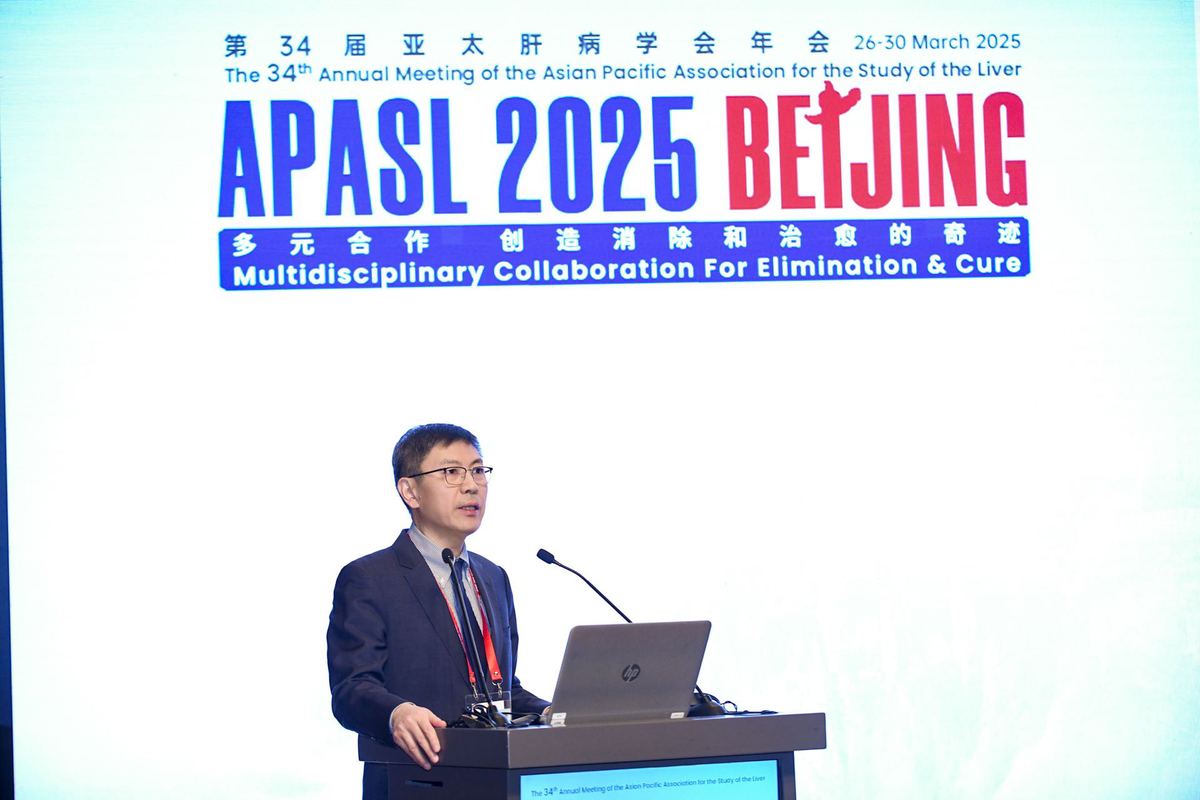APASL 2025 highlights collaborative efforts in combating viral hepatitis


The 34th Annual Meeting of the Asia-Pacific Association for the Study of the Liver (APASL) conference in Beijing, held from March 26 to 30, brought experts together to discuss China's approach to hepatitis elimination and global perspectives.
China has made significant progress in disease prevention, focusing on holistic approaches and international collaboration to develop new strategies for combating the disease.
Professor Wei Lai, director of the Hepatobiliary and Pancreatic Center of Beijing Tsinghua Changgung Hospital, noted China's achievements in viral hepatitis prevention and control. Still, he emphasized that prevention remains crucial.
Wei advocated for a holistic approach that integrates experts, families and communities. He also highlighted the significance of international collaboration for China to develop new models of prevention and medical care.
During the Integration of Prevention and Medical Care for Hepatitis Elimination session, experts from countries including the United States, Japan, South Korea and Singapore shared effective strategies for screening, diagnosis and treatment.
South Korea experts emphasized nationwide screening policies and efficient healthcare linkage systems, while Singapore focused on interdepartmental collaborations and community-centered care.
China has made significant progress through vaccination programs, blood screening, standardized diagnostic services, regulatory measures with a focus on early detection and treatment of hepatitis.
To improve diagnosis and treatment rates, China has implemented innovative models such as in-hospital screening and referral mechanisms. With strengthened training for non-infectious disease medical staff and enhanced in-hospital screening capabilities, individuals who are infected can be promptly diagnosed and treated.
Preventing and controlling viral hepatitis requires a systemic approach. Multi-party collaborations are crucial for effective prevention and management, which involves government leadership, public welfare organizations, medical institutions and enterprises.
The Chinese government has been instrumental in implementing regulations to eliminate viral hepatitis by 2030. To understand the characteristics of viral hepatitis, it has been standardizing diagnosis and treatment across medical institutions and conducting five epidemiological surveys.
Public welfare organizations and medical institutions are actively promoting screening, treatment, patient follow-up and health education. Different sectors of society should collaborate to improve public awareness of the disease and offer more systematic and precise individualized treatment plans.
Enterprises also play an essential role in fostering drug innovation, advancing research and development and improving treatment accessibility.
Wang Yu, chairman of the Chinese Foundation for Hepatitis Prevention and Control, summarized the importance of continued global cooperation and best practices to achieve the goal of viral hepatitis elimination.
- Further efforts needed to eliminate hepatitis B
- Multidisciplinary cooperation highlighted in the management of liver diseases
- China an essential force in tackling global challenge of hepatitis, experts say
- Over 5,500 liver experts to attend Asia-Pacific meeting in Beijing
- New tool helps predict recurring liver cancer
- APASL 2025 highlights collaborative efforts in combating viral hepatitis
- Former residence of Jiang Zemin in East China opens to public
- Unique spring in Xizang
- 'Macao-Madrid' cargo charter route launched in Macao
- Xi, BiH leader Cvijanovic exchange congratulations over 30th anniversary of diplomatic ties
- Xi extends condolences over passing of Laos' former president





































